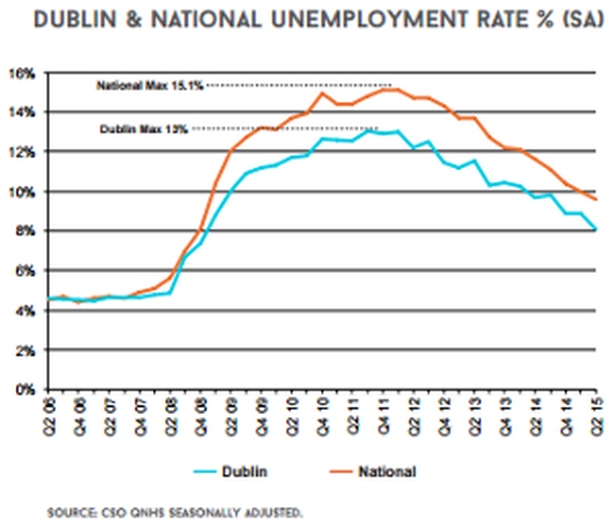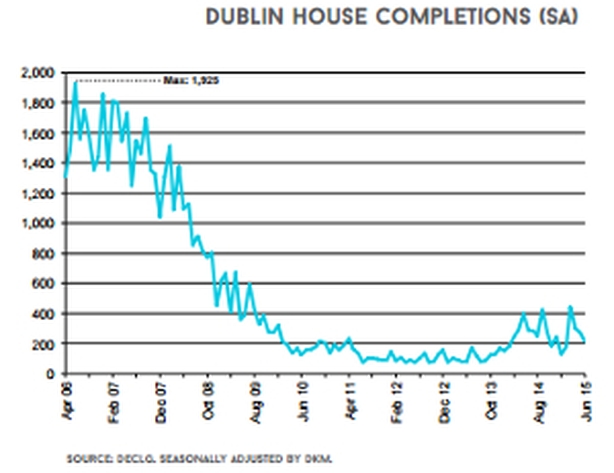The unemployment rate in Dublin continues to fall, while housing supply shortages in the capital remain a significant problem, according to the Q3 edition of the Dublin Economic Monitor.
The Monitor, which tracks 15 key economic indicators in Dublin, found that unemployment rates in the city fell during the second three months of the year, with the most recent rate in Dublin at 8.1%.

Residential rents for Dublin houses and apartments increased for a ninth consecutive quarter up to the end of September.
Supply shortages continue to affect the market and house completions remain weak, with just over 1,500 new houses built in the first half of the year.
Latest estimates on population growth contained in the report indicate that Dublin’s population expanded strongly by 2.4% (+27,300) in the year to April, with over 1.3m people now residing in the Dublin Region.
The data shows that passenger numbers at Dublin Airport recorded strong growth in the first half of 2015 with over 6m arrivals over the period.
With regard to consumer sentiment, a KBC/ESRI survey for Dublin showed a decline in Q3 from a record high in the previous quarter, as consumers expressed caution around big-ticket purchases and the jobs market.
Meanwhile, MARKIT Dublin PMI data showed continued strong growth across the board in Q3 2015, with improved business confidence and greater workloads boosting employment.
Commenting on the results, Chief Economist at KBC Bank Ireland Austin Hughes said: “It is important to note the consumer sentiment survey suggests that, on balance, Dublin consumers remain positive about the outlook for the economy, jobs and household incomes.
“Lately, however, worries about the global economy, the high-profile closures of Clery’s and Boyer’s and pressure on living costs in areas such as rents and insurance may have made them more concerned about the uneven nature of the upturn,” he added.
The Monitor is a joint initiative between the four Dublin local authorities and looks exclusively at the Dublin region.


